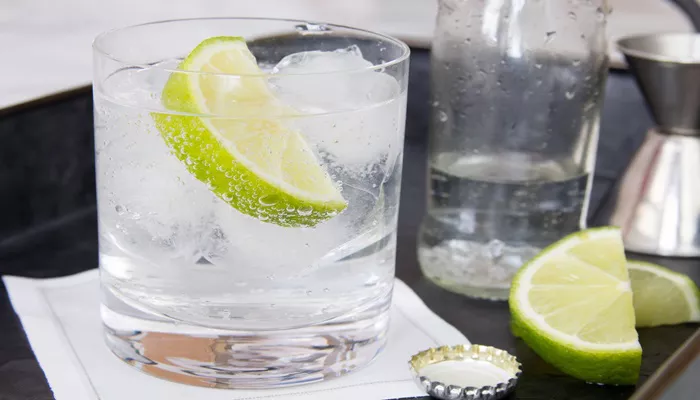Blood pressure management is a critical aspect of cardiovascular health, and the search for effective interventions and dietary adjustments is a common pursuit for many individuals. Tonic water, a carbonated beverage often consumed for its distinctive taste and use in cocktails, has sparked curiosity regarding its potential effects on blood pressure. This article explores the relationship between tonic water and blood pressure, examining its components, potential mechanisms of action, and the scientific evidence supporting or refuting its impact on hypertension.
What Is Tonic Water?
Tonic water is a carbonated beverage that contains a blend of water, sugar, carbon dioxide, and quinine. Quinine, the key ingredient responsible for tonic water’s characteristic bitter flavor, is derived from the bark of the cinchona tree.
Historically, quinine has been used to treat malaria, but its use in tonic water is primarily for its flavor rather than therapeutic purposes.
Quinine: Quinine is an alkaloid with a complex chemical structure that has been studied for various medical uses. In tonic water, quinine is present in relatively small quantities, typically around 83 milligrams per liter, which is much lower than the doses used for medicinal purposes.
SEE ALSO: Can Strength Training Lower Blood Pressure?
Carbonation: The carbonation in tonic water is achieved through the dissolution of carbon dioxide under pressure. This gives the beverage its fizzy quality and can affect the rate of gastric emptying and potentially influence hydration status.
Sugar and Sweeteners: Tonic water often contains added sugars or sweeteners to balance the bitterness of quinine.
Excessive sugar consumption can impact overall health, including blood pressure, but the sugar content in tonic water is generally moderate compared to other sugary beverages.
Mechanisms by Which Tonic Water Could Affect Blood Pressure
To determine whether tonic water can influence blood pressure, it’s important to consider the potential mechanisms through which its components might have an effect:
Quinine and Blood Pressure:
Direct Effects: Quinine has been shown to have some vasodilatory effects, which could theoretically lower blood pressure by relaxing blood vessels. However, the concentrations used in tonic water are so low that significant blood pressure changes are unlikely.
Indirect Effects: Quinine might affect the body’s fluid balance or have minor interactions with cardiovascular medications.
However, these effects are minimal due to the low dose of quinine in tonic water.
Carbonation and Blood Pressure:
Hydration Status: Carbonated beverages can affect hydration status and may lead to increased urine output. Proper hydration is important for maintaining healthy blood pressure, but the impact of carbonation alone on blood pressure is not well-established.
Gastric Effects: The carbonation in tonic water may influence gastric emptying rates and potentially affect blood pressure indirectly through changes in fluid balance.
Sugar Content and Blood Pressure:
Short-Term Effects: High sugar intake can cause transient increases in blood pressure. While tonic water contains some sugar, its impact is likely to be minimal compared to other high-sugar beverages.
Long-Term Effects: Chronic consumption of high-sugar diets is linked to increased risk of hypertension. Regular intake of sugary beverages, including tonic water, might contribute to long-term blood pressure issues if consumed excessively.
Scientific Evidence on Tonic Water and Blood Pressure
The scientific literature on tonic water specifically and its impact on blood pressure is limited. Most studies focus on quinine in therapeutic doses rather than the small amounts found in tonic water.
Clinical Studies: Research on quinine’s effect on blood pressure has primarily been conducted with therapeutic doses used for malaria, which are significantly higher than those in tonic water. These studies generally do not show a direct, significant impact on blood pressure.
Epidemiological Data: There is a lack of large-scale epidemiological studies directly linking tonic water consumption with changes in blood pressure. Most evidence on beverage effects on blood pressure focuses on alcohol and high-sugar drinks rather than tonic water.
Potential Risks And Considerations
Interactions with Medications: Individuals taking medications, especially those for hypertension or cardiovascular conditions, should be cautious about tonic water consumption. While the quinine content in tonic water is low, it might interact with certain medications, including blood pressure drugs.
Hydration and Electrolyte Balance: Excessive consumption of carbonated beverages can affect hydration status and electrolyte balance, which could indirectly impact blood pressure regulation.
Dietary Considerations: For those managing blood pressure, it’s essential to focus on a balanced diet and lifestyle rather than relying on specific beverages. Excessive intake of any sugary or carbonated drinks can have negative health effects.
Conclusion
In summary, tonic water is unlikely to have a significant impact on blood pressure due to the low concentrations of quinine and its overall composition. While quinine may have minor effects on blood vessel relaxation, the amounts in tonic water are insufficient to produce noticeable changes in blood pressure. Additionally, the carbonation and sugar content, while potentially influencing hydration and overall health, are not substantial factors in blood pressure management.
For individuals concerned about blood pressure, it is more effective to focus on a comprehensive approach involving diet, exercise, and medical advice rather than relying on specific beverages. Continued research and a better understanding of how various dietary components influence blood pressure remain important for managing and preventing hypertension.

